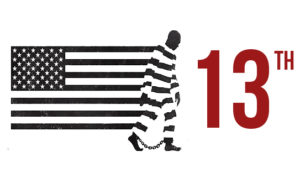
Ethan Yu
Contributing Writer
Last Wednesday, April 8, the UC Santa Barbara (UCSB) MultiCultural Center (MCC) hosted its quarterly “Cup of Culture” movie screening and moderated discussion on Ava DuVernay’s 2016 documentary, “13th.” The event was virtually hosted through Zoom as the MCC transitioned to online programming for the spring quarter.
Like most UC Santa Barbara programs that were forced to suddenly shift onto virtual platforms, the movie streaming was slightly rocky due to connection issues and video latency. When the audio was clear, however, viewers felt deeply absorbed by the compelling story that revealed the suffering that this country is built on.
“13th” is so-titled as a reference to the 13th amendment, the amendment that abolished slavery and involuntary servitude except as criminal punishment. However, it is the caveat of “except as criminal punishment” that has justified and perpetuated the dehumanization of Black people into disembodied Black bodies through the prison-industrial complex.

The movie brings many prominent scholars and politicians from both sides of the political aisle like Newt Gingrich and Angela Davis to discuss how since the Civil War, our country’s mythos has been haunted by the stereotype of the male, Black criminal. In the name of establishing “law and order,” the U.S. government has terrorized Black people ever since.
Including examples such as the production of the 1915 silent epic film, “The Birth of a Nation,” infamously known for its portrayal of Ku Klux Klan and their acts of terror as glorious and heroic as well as Clinton’s infamous “Three Strikes Law” and the shooting of Trayvon Martin, “13th” is a historical testament of how fear, hate, and bigotry have ruined so many lives.
After an hour and forty minutes chronicling the growth of Nixon’s “Southern Strategy” and Reagan’s disastrous “War on Drugs” into today’s political situation, the film ends with footage of recent fatal shootings of Black people by the police.

Even though only six people were in attendance — four of which were MCC student assistants and event managers — the discussion was surprisingly lively. Many did not know the extent to which Jim Crow ideologies had infested society to this day until they saw the documentary.
With the pandemic on all our minds, the conversation easily went to a discussion on how we continue to see how racism, xenophobia, and other forms of structural inequality affect marginalized groups of people today in the U.S., especially those in Asian, Black, and Latinx communities.
The number of hate crimes towards Asian Americans have skyrocketed as politicians like Donald Trump continue to refer to COVID-19 as the “Chinese virus.” This name-calling has contributed to what many people consider the scapegoating of minorities. Members of the public have accused the Trump Administration of weaponizing fear and anxiety to distract from the numerous blunders his administration has committed and denied since Jan. 3, causing the death of thousands.
New reports are coming in that Black people are disproportionately dying from COVID-19 due to poor access to medical care caused by structural inequalities. For the Black community, wearing a mask in public is also politically charged — many have shared fearing for their lives as masks might increase the likelihood of being racially profiled by police.
If anything, what is happening today is proof that even an unfeeling virus can hit marginalized communities harder and how our institutions, fraught with racial and systemic bias, continue to fail those in need the most. “13th” is a documentary that needs to be watched to better understand how we as a nation got here.
Sheila Tran contributed reporting to this article.
“13th” can be streamed on Netflix and the MCC will continue hosting “Cup of Culture” every Wednesday of spring quarter from 5:30 p.m. to 8:30 p.m. More information can be found on their Facebook page: https://www.facebook.com/ucsbmcc/.










